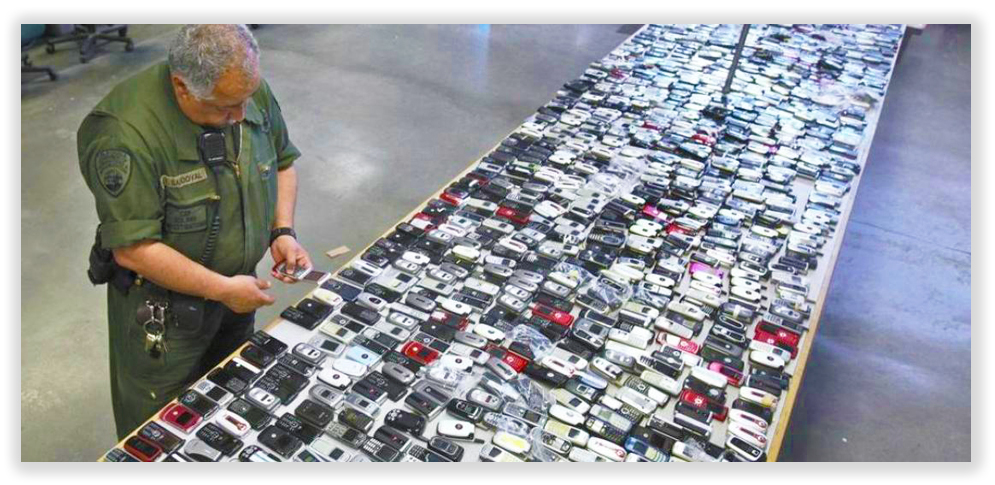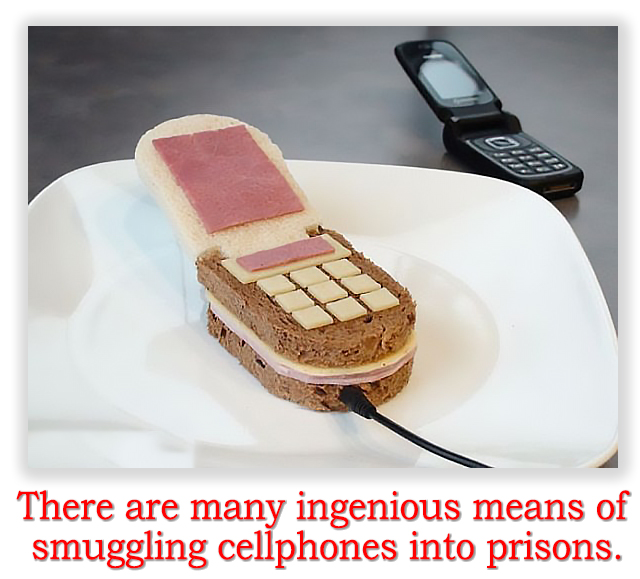We post news and comment on federal criminal justice issues, focused primarily on trial and post-conviction matters, legislative initiatives, and sentencing issues.
FCC HOLDS MEETING ON BLOCKING PRISON CELLPHONES
Just this week, two officers at South Mississippi Correctional Institution in Greene County were arrested after they were caught with contraband during the first major shakedown of the year under Operation Zero Tolerance. And in California, Federal officials using a task force of 750 officers rounded up dozens of suspects early Wednesday to disrupt what they described as a massive street and prison gang conspiracy to distribute methamphetamine, cocaine and heroin using social media, coordinated between street gangs and prison gang leaders who used cellphones smuggled into prisons to coordinate their activities.
 All of this points to the serious problem prison officials have combatting the infiltration of cellphones into facilities. But BOP officials and members of Congress say they’re hopeful that a meeting last week with wireless industry representatives will lead to a solution that combats security issues posed by cellphones in prison. The Federal Communications Commission hosted the meeting, making good on a promise last year by FCC Chairman Ajit Pai to help facilitate conversation among law enforcement, prisons officials and wireless providers to address the issue that corrections officers say is their chief safety threat behind bars.
All of this points to the serious problem prison officials have combatting the infiltration of cellphones into facilities. But BOP officials and members of Congress say they’re hopeful that a meeting last week with wireless industry representatives will lead to a solution that combats security issues posed by cellphones in prison. The Federal Communications Commission hosted the meeting, making good on a promise last year by FCC Chairman Ajit Pai to help facilitate conversation among law enforcement, prisons officials and wireless providers to address the issue that corrections officers say is their chief safety threat behind bars.
Prisons officials say cellphones — smuggled into institutions by the thousands, by visitors, employees, and even delivered by drone — are dangerous because inmates use them to carry out crimes and plot violence both inside and outside prison. The FCC has said it can’t permit jamming in state prisons, but it has permitted a test of signal blocking at FCI Frostburg in January. Wireless industry groups oppose jamming. In a letter filed with the FCC last month, a trade group wrote that court orders should be required to shut down devices in prison.
 “I am encouraged by how seriously the FCC is taking the issue of contraband cell phones in prisons,” Congressman David Kustoff (R-Tennessee) told The Associated Press. “I look forward to the telecommunications industry working with state corrections officials to put a stop to this concerning public safety threat.” Kustoff has been among those pushing for a fix to the phone problem. He spoke with AP after being briefed by his state prisons director, who was one of several attending the meeting.
“I am encouraged by how seriously the FCC is taking the issue of contraband cell phones in prisons,” Congressman David Kustoff (R-Tennessee) told The Associated Press. “I look forward to the telecommunications industry working with state corrections officials to put a stop to this concerning public safety threat.” Kustoff has been among those pushing for a fix to the phone problem. He spoke with AP after being briefed by his state prisons director, who was one of several attending the meeting.
Representatives from the U.S. Department of Justice and BOP attended the meeting, as did Congressman Mark Sanford (R-South Carolina), who has spoken out about the issue of cellphones in prison since his time as South Carolina’s governor from 2002 to 2010.
The FCC has been softening on the jamming issue, thanks to persistent pleas from state and federal officials. The BOP test in January, is said to have been successful. Previously, the problem has been how to jam the illegal cell phone signals inside the prison but not interfere with legitimate cell signals just outside the prison walls, such as those from first responders. Proponents of the latest tests say the technology has advanced and the range is now more predictable. Assistant U.S. Attorney General Beth Williams told AP that the test represented “a big step” and could lead to the broader use of such technologies.
AP, FCC schedules meeting to address prison cellphone issues (Jan. 25, 2018)
Inside Towers, Pai Calls on Carriers to Help Block Illegal Prison Cell Phone Signals (Feb. 6, 2018)
Wireless Week, Corrections, Congress ‘Encouraged’ by Prison Phones Meeting (Feb. 10, 2018)
– Thomas L. Root

